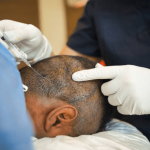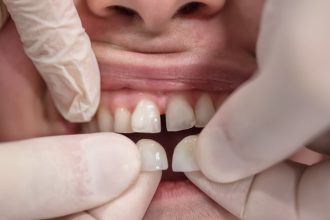Alcoholism is the irresistible urge to consume alcohol knowing its injurious consequences to physical, mental, and behavioral health.
As per recent statistics, around 107 million people have been suffering from Alcohol Use Disorder (AUD) around the globe and it has been the reason for more than 3 million deaths each year.
Let’s take a look at how alcoholism starts and ultimately reaches the stage of addiction.
How Does Alcohol Addiction Start?
Alcoholism develops over time. It gradually progresses through mild and intermediate phases until it finally reaches the severe stage characterized by extreme dependence as a consequence of persistent and heavy drinking.
It usually begins for people as experimental drinking, social drinking, or indulging with a few shots as a means to escape from stress. People might not drink regularly at this point and it is not possible to differentiate them as alcoholics as they return to being their perfectly functional selves just after alcohol flushes out of their body.
There can be a range of social, environmental, and even genetic causes that lead an individual to develop alcoholism. If you have a family history of alcohol abuse, you may be potentially at a 4-fold risk of falling for substance use disorder yourself.
How Alcohol Affects The Brain And Behavior?
Alcohol after entering your system starts to interfere with how the brain communicates with the rest of the body. Short-term consumption can initiate sedative symptoms like blurry vision, difficulty in movement, impaired judgment, imbalance, blackouts, delayed reaction time, etc.
Soon after consumption, it gets absorbed into the stomach lining, reaches the bloodstream and then travels to the other organs. The absorption rate of alcohol is quicker when taken on an empty stomach and in higher concentrations.
Once it hits the brain, it starts reacting with the neurons and triggers the flow of feel-good chemicals like dopamine, which can be associated with the distinct ‘high’ that people experience after consuming a generous amount of alcohol.
This feeling of pleasure is what people get addicted to when they reach the later, more critical stages of alcoholism.
How Does The Dependence On Alcohol Grow?
As occasional drinking converts into frequent binge drinking sessions, it becomes harder to refuse and the person reaches the intermediate stage of alcoholism where even if they try to control their intake out of realization or guilt, they usually fail to do so.
They find themselves taking and enjoying drinks casually even without any social obligations.
When people are in the pre-alcoholic stage, they exhibit comparatively less tolerance to its effects on the mind and body as compared to regular drinkers which is the reason they get intoxicated more quickly with the same amount of alcohol.
The more you drink, the more tolerant your system becomes to it which consequently increases the amount you will need to consume in order to experience the desired effects.
End Stage Alcoholism Or Addiction
This is the stage when someone becomes completely dependent on alcohol. They lose control of their lives, always remain preoccupied with drinking, ignore all other responsibilities, and experience problems with social interactions and relationships.
The individual starts to experience what are called withdrawal symptoms in between two drinking episodes.
These symptoms can be physical as well as psychological. Mentally, the person becomes irritable, undergoes mood swings, anxiety, paranoia, etc. while physically, it manifests in the form of disturbed sleep quality, indigestion, increased heart rate, sweating, chills, seizures, etc.
If you don’t treat the condition at this stage as well, it might go on to cause chronic illnesses like liver damage or heart failure.
If you are also suffering from AUD, ask for help today! Check out the alcohol treatment Muse in Los Angeles for targeted addiction control therapies.
Conclusion
Alcoholism is a complex condition. A person can unknowingly fall into an unmanageable cycle of addiction. Once you develop a craving for alcohol, you tend to increase the intake, which further intensifies the compulsions after which even if you try hard to keep sober, you eventually relapse.
But it is important to note that no matter what stage of alcoholism you are at, it can still be controlled with medical help. The sooner you act, the better the chances of recovery.















